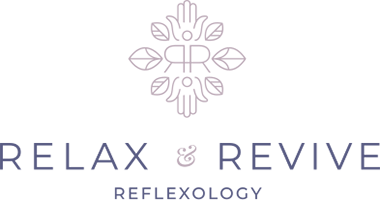Approximately one hour. The first consultation takes 1 hour 15 minutes.
The session will begin with a consultation that can last from 15 to 30 minutes. We’ll look at your lifestyle and stress level, diet, symptoms of any current and past illnesses or pain, as well as how you feel emotionally. You will be given time to talk about how reflexology can help you, whether for relaxation or to help with a particular condition. I will also discuss with you how a course of reflexology could benefit your condition.
A reflexology treatment can take up to one hour. During the first treatment, all the body systems including skeletal, digestive, endocrine, respiratory, and lymphatic will be treated. Following treatments may focus on one or more of these systems and include relaxation techniques, depending on the presenting symptoms.
Wear comfortable, loose-fitting clothing.
You will find reflexology very relaxing and will feel the need to close your eyes and drift off.
You will feel very relaxed, energised and invigorated after a reflexology treatment. Reflexology helps the body to remove waste products and toxins. When this happens you may experience a reaction such as increased bowel movements, increased urination or perspiration, a runny nose, etc. You may also feel tired or emotional. This is a sign that the treatment is working well and is known as a 'healing crisis'. The best thing is to drink lots of water, avoid alcohol and allow the healing to work. And don’t worry. It will pass and you’ll feel much better than you did before.
Absolutely! anything you tell me during our time together is entirely confidential and all information I hold on you is also confidential and not used for anything other than my records.
Most people love reflexology and receive it regularly. However it isn’t safe for everyone and caution must be taken for some people.
You should not under any circumstance receive reflexology if you have any of the following:
- Deep vein thrombosis
- Thrombophlebitis
- Severe cellulite on the feet or legs
- Acute infection with high temperature
- Stroke - in the first two weeks
- An unstable pregnancy
During pregnancy, your body goes through significant changes, all of which affect the emotional, hormonal and physiological balance of the body. Reflexology helps restore the body’s equilibrium and may help alleviate or prevent discomfort arising from these changes.
Specifically, it has been shown to help with the following:
- General relaxation and relief of stress and anxiety
- Increased energy levels
- Indigestion and heartburn
- Backache and sciatic pain
- Nausea and vomiting
- Fluid retention (e.g. in feet and ankles)
- Ligament and groin pain
- Constipation
- Insomnia and sleep problems
Although there are few contra-indications to reflexology, there are some conditions where it should be avoided altogether and these include:
- Pre-term labour - at any time before 37 weeks
- Placenta previa - if Grade II or III after 32 weeks
- Hydramnios - if there is too much amniotic fluid around the baby after 32 weeks
I would advise women with an increased risk of deep vein thrombosis (DVT) or pre-eclampsia to seek medical advice before having reflexology. If you are a diabetic mother-to-be, I would advise you check your blood sugar before and after treatments, as reflexology helps to balance the endocrine system and insulin production.
Whilst I do not practice specific Fertility and Maternity reflexology I can provide you with details of accredited practitioners in these areas.
